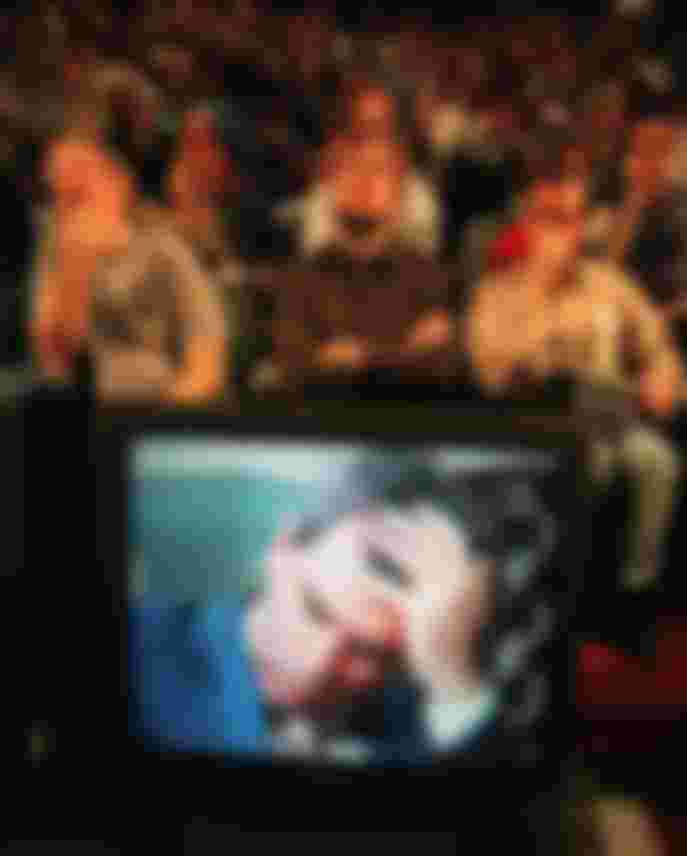Will the machine become smarter than humans? No, it is a science fiction-inspired fantasy. Only then is it assumed that this entity will finally compete with man himself.

Significant advances in artificial intelligence in recent years have paved the way for some inventions that we never thought would be possible. Computers and robots now have the ability to think about ways to make our work better, as well as make decisions. However, we can not raise some questions. What can the instrument think? What can artificial intelligence do at this stage of evolution? To what extent is it independent? What will be the status of human decision making?
Artificial intelligence is provoking the Cultural Revolution more than opening the door to the Fourth Industrial Revolution. Inevitably it will change our future, but exactly how, we still do not know. That is why it is creating both surprise and fear.

Robots follow certain routines when working with humans. But it does not have the power to create social relationships in the true sense of the word.
In the present issue, attempts have been made to explain some of the aspects of computer science, engineering and modern technology of philosophy. Several things have been clarified in this context. Because, it needs to be clear that artificial intelligence cannot think.
Besides, it is still a long way to go before all human components can be downloaded to a computer. Robots follow certain routines when working with humans. But it does not have the power to create social relationships in the true sense of the word.
Yet some applications of artificial intelligence are already in question - data collection invading personal privacy, facial algorithms involving violent behavior identification or racist reform, military drones and automatic lethal weapons, among others. The number of serious moral problems caused by artificial intelligence is huge. All these problems will undoubtedly continue in the future.

CB2 is a child robot. It was made by Minoru Asada of Japan. The purpose of making it was to observe how the robot learns. Here the robot is being taught to crawl
While research into the technical aspects of artificial intelligence is in full swing, little progress has been made in the field of ethics. Although many researchers have expressed concern about this, and some countries have begun to think seriously about it, there is still no legal framework to guide future research on ethics from a global perspective. In 1956, at a summer workshop at Darmuth College in New Hampshire, USA, organized by four American researchers, John McCarthy, Marvin Minsky, Nathaniel Rochester and Claude Shannon, Artificial Intelligence was introduced as a science subject. Since then 'Artificial Intelligence' or 'Artificial Intelligence' Bullying has become so popular that everyone knows about it these days. Probably the first thing that was invented for the sake of making it attractive.
However, the success of AI, or AI for short, is often interpreted to mean artificial intelligence, which is based on misconceptions. Only then is it assumed that this entity will finally compete with man himself. The idea is reminiscent of ancient myths and legends, such as the Golem [living idol of Jewish folklore]. However, the late British physicist Stephen Hawking (1942-2018), American entrepreneur Elon Musk, American futurist Ray Carwell, and what we now call the powerful AI or Artificial General Intelligence (AGI) have become more contemporary people.

World chess champion Gary Kasparov lost to Deep Blue Supercomputer at 1997.
This branch of science is largely based on the idea of explicitly describing computer programming in order to recreate every work of knowledge especially education, reasoning, calculation, ideas, memory, and even scientific discovery or artistic creativity. More than sixty years after the existence of AI, there is nothing to disprove or disprove this idea, so it is still quite open and promising. It can be said that no final result has been achieved yet.
Unequal Progress: In its short lifespan, AI has undergone numerous changes. These can be summarized in six stages.
Proponents of her case have been working to make the actual transcript of this statement available online. Proponents of her case have been working to make the actual transcript of this statement available online. That is why they have to face harsh criticism later. For example, American political scientist and economist in 1958, Nobel Laureate in Economics in 1978 Herbert A. Simon announced that the machine would be the world champion within ten years if he did not miss out on international sports
Dark Ages: Progress seems to have slowed down in the mid-sixties. In 1965, a ten-year-old boy lost his computer in chess. A 1966 Senate-directed report highlighted the limitations of mechanical translation. AI has been the subject of bad news for almost a decade.

Computers can now accurately recognize looks or fingerprints from millions of people or handprints
Artificial Intelligence: Although work has progressed, research has been conducted in a different direction. In an attempt to activate the computer, he has focused on the psychology of memory and the process of perception and the role of knowledge in the application of reasoning. Significant advances were made in the mid-1970s to develop the name because of the repetition of their thought processes by utilizing the knowledge of skilled professionals. In the 1980's, the system of expertise in the field of diagnostics and its application to a wide range of applications gave rise to great optimism.
Neo-Communism and Mechanical Education: Technological advances have led to the learning of machine algorithms. As a result, computers have been able to reprogram themselves automatically by accumulating various knowledge using their own experience.
This, in turn, has led to the development of hybrid systems that combine artificial intelligence, computer science, artificial life, and other field techniques with the development of applications in the industry (fingerprint recognition, voice recognition, etc.).
Artificial Intelligence to Man-Machine Connection: Artificial intelligence has been associated with robotics and man-machine communication since the late 1990's in order to create intelligent entities such as the existence of feelings and emotions. It opens the way for effective computing, and especially chatbots, for the purpose of re-creating the machine after evaluating the perceived emotions of the content among other things.
The Renaissance of Artificial Intelligence: Since 2010, based on the use of formal neural networks, the power of the device has made it possible to use large amounts of data (Big Data) in deep learning methods. A number of highly successful applications - including voice and image recognition, normal language perception, and automated vehicles - are leading to the creation of artificial intelligence.

Extensive changes are coming to surgery, using AI will make complex operations easier
Applications: Many successes using artificial intelligence go beyond human capabilities. In 1997, a computer program defeated the World Chess Champion. In 2016, other computer programs lost the Sega Go [ancient Chinese board game] players and several of the best poker players. Computers are now proving or helping to prove different types of mathematical theorems. Knowledge is being automatically generated in terabytes (1012 bytes) or even in petabytes (1015 bytes) from huge amounts of data using mechanical learning techniques. As a result, the instrument is now recognizing and transcribing - exactly what typists did in the past.
Computers can now accurately recognize faces or fingerprints from millions of people or handprints, or read text written in normal language. Using mechanical learning techniques, the car moves automatically. Machines are now better than dermatologists in detecting rashes using pictures of skin lesions taken on mobile phones. Robots are now taking part in wars instead of humans. The production process in the mills is increasingly automated. AI has also entered the mobile phone, everyone who uses my smart phone knows, eyeballs, handprints or voice recognition - all these have come down to the normal level in the mobile.

The first programmable computer was created during World War II, ENIAC
Scientists are using artificial intelligence techniques to determine the function of specific types of biological macromolecules, especially proteins and genomes, from the stages of formation. More generally, all branches of science are going through a period of major epistemological insanity due to silico testing. Powerful processors from large amounts of data, the core of which is made of silicon, This naming is because the test is run through the user's computer. Thus, these differ from in vitro tests performed on living objects and glass test tubes. At present, artificial intelligence is affecting almost all sectors - especially industry, banking, insurance, health and defense. Some of the daily work is now being done automatically, many professions are changing, some professions are disappearing.
What are the ethical risks: Probably due to artificial intelligence, most aspects of intelligence without humor have become a matter of logical analysis and reconstruction through the use of computers. In addition, machines are in many cases exaggerating our cognitive abilities and raising fears of moral hazards. This risk can be divided into three categories: lack of work because it is possible to work with machines instead of humans; Degradation of individual individuality, especially in the areas of freedom and security; And more ‘intelligent’ machines occupy people’s space.

Robots are working on healthcare in Corona, Makkah
But in the real world, lumbering elephants are exposed by the aggression of speeding midgets. On the contrary, new skills are needed. Similarly, as long as we are alert to the intrusion of instruments into private life, the development of artificial intelligence does not interfere with the freedom and independence of any individual. After all, no matter what people in general demand, Machines are not a threat to human existence. Their independence is only technical, in which case the machine is only concerned with the material flow from information to decision making. Machines, on the other hand, do not have moral freedom, because even if we are confused and misguided in the decision-making process, they have nothing to do with their own will, they will be subject to the imposed purpose.







